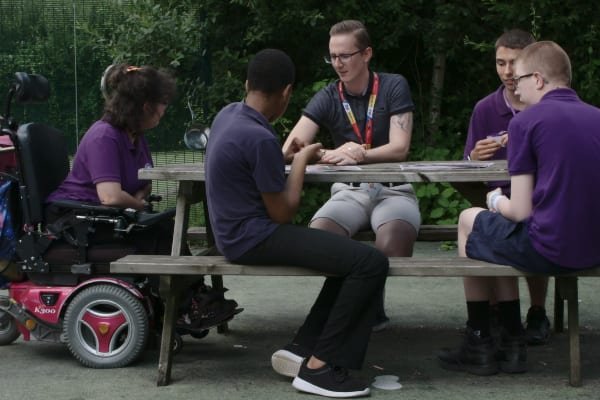Building life skills
The programme has been designed to make DofE participation possible for students with diverse difficulties and disabilities.
It will help the students to build crucial personal life skills, develop employability skills and become more independent, and aims to offer students the same experiences available to their peers in mainstream education.
The impact of achieving a DofE Award is remarkable and will be life-changing for young people with physical or learning difficulties, who are often excluded from adventurous activities due to a lack of accessible equipment, facilities, trained support staff and funding.
The Duke of Edinburgh Award
The DofE was set up by The Duke of Edinburgh in 1956. Since then, 6.7 million young people have taken part and 3.1 million have achieved their Award, proving to themselves that they’re ready for whatever life throws at them.
Due to the pandemic, the DofE has never been more needed. It offers young people the chance to be free to follow their own passions and discover new skills and talents they never knew they had.
Participants make a difference in their community by volunteering for causes they care about. They escape, have fun and make friends for life – and learn that if you believe in yourself, you can do anything.
Over 330,000 young people across the UK are currently doing their DofE, including 180,000 young people who started their DofE programme in 2020/21.
In 2020/21, 45,000 achieved an Award and 62,400 earned their Certificate of Achievement, through a range of Licensed Organisations including schools, youth groups, young offender institutions, sports clubs, hospitals and fostering agencies.
22% of new participants were young people facing financial hardship, social exclusion or those that need specialist support to do their Award, such as young offenders or young people with special educational needs or disabilities.
The DofE’s ambition is to reach one million more young people in the UK over the next five years, as part of its Youth Without Limits strategy (launched June 2021).
Honouring Prince Philip’s memory
His Royal Highness, The Duke of Edinburgh, who founded the DofE in 1956, was himself a Freemason, having been introduced to Freemasonry in 1952 at the age of 31 by his father-in-law King George VI. Throughout his 99 years, he was associated with some 992 charities, either as president, patron or honorary member.
‘Prince Philip was well known for his charity work, having been involved with numerous organisations. At UGLE, we looked for a project that would honour Prince Philip’s memory. Helping young people with special educational needs and becoming a strategic partner of The Duke of Edinburgh’s Award is therefore a great honour for us.
‘Helping the DofE was an easy decision as Freemasonry’s core values are charity, integrity, respect and friendship.’
DR DAVID STAPLES
Chief executive of the UGLE
 Play Video about This Rock Might Just Save The World
Play Video about This Rock Might Just Save The World Play Video about Play 2 hours of rock
Play Video about Play 2 hours of rock Play Video about Play 2 hours of brook
Play Video about Play 2 hours of brook Play Video about Play 2 hours of sheep
Play Video about Play 2 hours of sheep















































